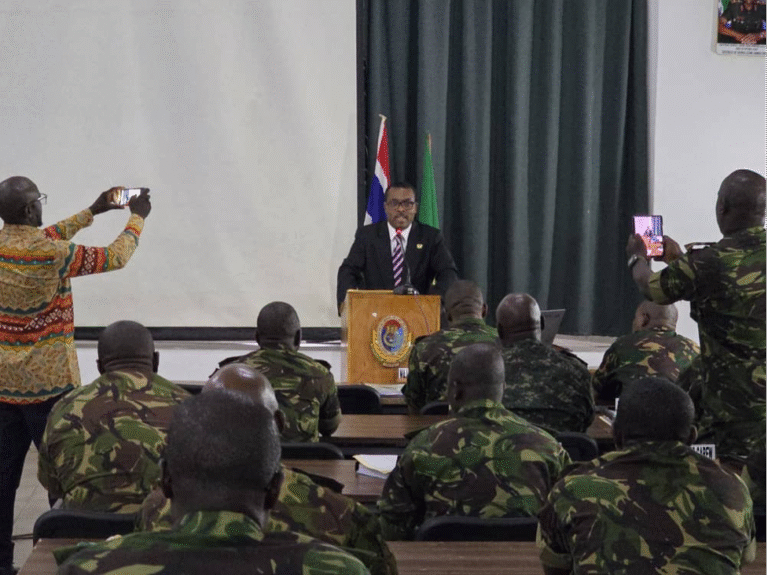…Reforming The Petroleum Sector
By Saidu Dumbuya
During the Weekly Information Press conference held on Tuesday, July 15, 2025, at the Miatta Conference Centre, Youyi Building, Freetown, the Director General of the National Petroleum Regulatory Authority (NPRA), highlighted the agency’s transition from the Petroleum Regulatory Agency (PRA) to the National Petroleum Regulatory Authority (NPRA) and addressed concerns over fuel pricing disparities in thecountry.
DG Baluwa described the transition as a “fast-track transformation,” likening it to a graduation that has positioned the NPRA to better serve the nation. He highlighted the significant strides made in the petroleum sector over the past five years under President Julius Maada Bio’s administration. “Five years ago, our stock levels lasted a minimum of 10 to 14 days, leading to frequent importations and disruptions,” DG Baluwa noted. He recalled instances where fuel dealers were restricted to purchasing limited quantities, causing market rationing that impacted consumers.
Under the NPRA’s leadership, the sector has undergone a remarkable overhaul, guided by three key objectives set by President Bio, opening the market, developing downstream infrastructure, and securing petroleum revenue while protecting government taxes. DG Baluwa reported that daily fuel consumption has risen from one million to 1.3 million litres, with storage capacity increasing to 278,000 tons more than double the capacity five years ago. The sector now contributes 12% of government revenue, with consistent annual growth since 2018.
The NPRA has also reviewed the fuel pricing formula in collaboration with the Ministry of Finance and the World Bank to align with international best practices. Addressing concerns about varying fuel prices, DG Baluwa clarified that the NPRA has set a price ceiling of NLe 27.4 per litre, urging the public to report any station selling above this rate. He emphasized that Sierra Leone’s uniform fuel pricing across the country is unique globally, stating, “It is not happening anywhere in the world except Sierra Leone.”
The new NPRA Act, enacted to replace the outdated 2014 PRA Act, introduces robust measures to stabilize the sector. Part 3, Sections 12 and 54 of the Act mandate the NPRA to maintain strategic government stock and ensure licensed operators hold minimum stock balances. “Today, we have products that will last six to seven weeks, a level of stock balance never seen in this country,” Koroma said. The Act also removes barriers to market entry, increasing the number of players from three to ten, including local and youth-led businesses.
DG Brima Baluwa Koroma addressed misinformation about fuel pricing, noting that some dealers selling below the ceiling price such as NLe 25 or NLe 26 per litre are responding to increased market competition fostered by government policies. “Five years ago, no fuel dealer reduced prices on their own,” he remarked, challenging the media to cite a single instance of such voluntary price reductions in the past. He urged journalists and civil society organizations to support the NPRA’s efforts and avoid sending misleading messages to consumers and dealers.
The Director General concluded by calling for public support to sustain the agency’s achievements, emphasizing that the NPRA’s policies have eradicated past issues like fuel rationing, ensuring that consumers can access their desired quantities at any fuel station. “Let us work together to protect the interest of the public,” he said.







